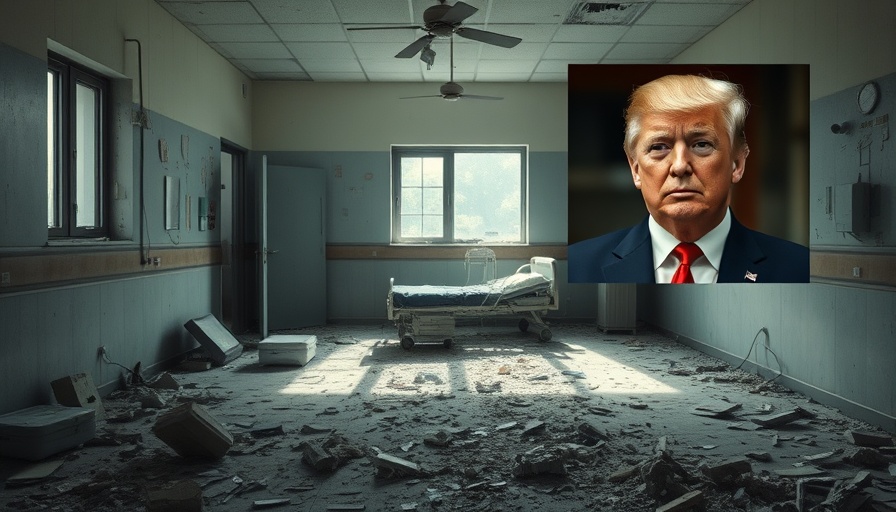
The Tug-of-War Over Ukraine: Trump's Ultimatum
In a dramatic development, Moscow has responded sharply to President Trump's recent ultimatum regarding the Ukraine conflict, warning that the new deadline he proposed could lead to escalated tensions between the United States and Russia. Dmitry Medvedev, a prominent Russian politician and ally of President Vladimir Putin, characterized Trump’s call for a cease-fire within 10 to 12 days as “a step towards war.” This rhetoric follows Trump's expressed frustration at the stagnation of peace talks, as he looks to fulfill his campaign promise to end the three-year conflict swiftly.
The Stakes of Cease-Fire Negotiations
The growing intensity of missile strikes and drone assaults from Russia, exemplified by a recent attack that killed at least 21 civilians, highlights the perilous situation on the ground. Medvedev's remarks also suggest that the Kremlin views Trump's ultimatum as a prime example of how not to navigate the geopolitical landscape. By threatening sanctions and military aid to Ukraine, Trump's approach could unwittingly provoke greater hostility from Russia, complicating the already fragile conditions for peace.
Understanding the Russian Perspective
For Russia, the ongoing war is not only about territorial claims but also about reinforcing national identity and unity against perceived external threats. Medvedev's response reflects a broader strategy to rally Russian public support against Western nations, framing the conflict as part of a larger geopolitical struggle. The Institute for the Study of War notes that Kremlin propaganda plays a crucial role in reinforcing this narrative, thus heightening domestic support for military actions.
Domestic Implications for Trump
If Trump fails to manage this situation effectively, his failure could have significant political ramifications. Trump’s new deadline for peace puts him in a precarious position, enhancing the stakes of his leadership not just with international actors like Putin, but also with constituents at home. As frustration mounts over a lack of progress, his ability to fulfill his campaign promises remains under scrutiny—a reality that could impact his reelection bid.
Future Predictions: A Dangerous Path Ahead
As the conflict escalates, experts are concerned that both nations are stepping onto a slippery slope that could lead to wider confrontation. Tensions are likely to continue rising as Trump and the United States push for a cease-fire while Russia amplifies its military operations. Looking forward, it's imperative for Washington to reassess its strategies and consider diplomatic avenues, lest they find themselves in a protracted and destructive conflict.
Calls for Strategic Diplomacy
To stave off escalating tensions, a more nuanced diplomatic approach may be necessary. Instead of ultimatums that leave little room for negotiation, engaging Russia through discussions aimed at establishing common ground could yield more favorable outcomes. Such strategies could not only help prevent a humanitarian crisis but also create pathways to lasting peace.
Emotional Impact of the Conflict
The brutal reality of conflict in Ukraine underscores the profound human impacts of war. Civilians continue to bear the brunt of military aggression, with families shattered and lives irrevocably altered. It is crucial to remember that behind the political rhetoric are real human beings suffering the consequences of geopolitical chess moves. This reminder should move both leaders and the international community towards prioritizing peace.
As the situation unfolds, staying informed through reputable news sources remains essential. This conflict not only shapes the future of US-Russian relations but has far-reaching implications for global stability as well.
Engaging with this topic can be vital in fostering understanding and advocating for effective measures that prioritize peace over continued conflict. Join the conversation about how best to approach this challenging geopolitical situation.
 Add Element
Add Element  Add Row
Add Row 



Write A Comment